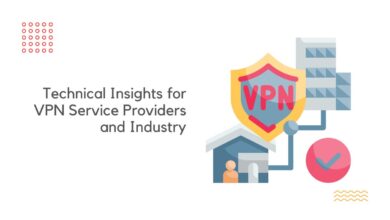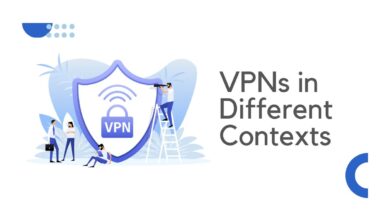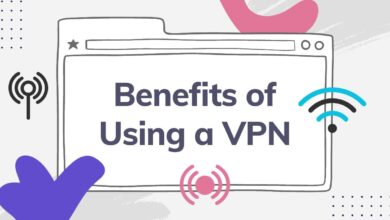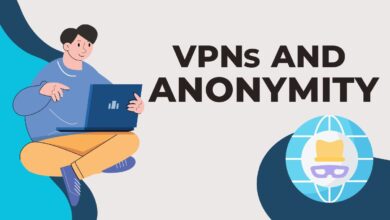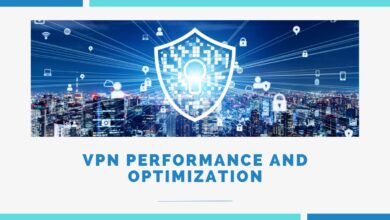VPN Privacy and Anonymity
Virtual private networks, or VPNs, are essential tools that offer an extra layer of security and privacy to internet users. By encrypting internet traffic and masking IP addresses, VPNs enable users to browse the web anonymously, shielding their data and online activities from prying eyes.
Whether it’s for protecting sensitive personal information, securing online transactions, or accessing geo-restricted content, understanding the role of VPNs in enhancing online privacy and anonymity is crucial for anyone navigating the digital landscape.
Online Privacy Basics
Online privacy encompasses the safeguarding of personal information and activities on the Internet. It’s a critical aspect of navigating the digital world, as it protects individuals from potential risks such as identity theft and fraud, data breaches, and unwanted surveillance. Maintaining online privacy is vital for several reasons:
-
Personal Security: Protecting personal details like your address, financial information, and social security number from malicious actors.
-
Control Over Personal Data: Having the ability to control who accesses your information and how it’s used.
-
Freedom of Expression: Feeling safe to express opinions without fear of being tracked or targeted.
Approximately 62% of U.S. adults believe it is impossible to go through daily life without having their data collected by companies. [1] This underscores the pervasive nature of data collection and the growing concern among individuals about their online privacy.
How VPNs Protect Your Anonymity
VPNs, or Virtual Private Networks, are powerful tools for protecting your anonymity online. VPNs primarily function to encrypt internet traffic and mask IP addresses. This encryption helps protect users from unauthorized data interception and enhances privacy by hiding users’ online activities. For instance, when using a VPN, an individual’s internet service provider (ISP) cannot easily track their browsing activities, and their data becomes less accessible to potential hackers, especially on public Wi-Fi networks.
They work by creating a secure, encrypted tunnel between your device and the internet, which offers several key benefits for maintaining anonymity:
IP Address Masking
A VPN hides your real IP address, which is a unique identifier of your internet connection. Instead, it shows the IP address of the VPN server, making it difficult for websites, advertisers, and potential attackers to track your actual location and internet activities.
Data Encryption
All the data transferred between your device and the VPN server is encrypted. This means that even if someone intercepts your internet traffic, they cannot easily read or use your personal information.
Secure Public Wi-Fi Use
Using public Wi-Fi networks can expose you to various risks. VPNs encrypt your data even on unsecured networks, protecting you from eavesdroppers and hackers who might be scanning these networks for personal data.
Bypassing Geo-Restrictions and Censorship
VPNs can circumvent geographical restrictions on websites and content, allowing you to access information freely without revealing your real location. This is particularly useful in countries with strict internet censorship.
No Logs Policy
Many VPN providers have a strict no-logs policy, meaning they do not keep records of your online activities. This further ensures that your online behavior cannot be traced back to you.
Prevention of Tracking and Targeted Advertising
Since VPNs mask your IP address and encrypt your data, it becomes more challenging for companies to track your online behavior for targeted advertising purposes.
Fast Facts
“VPN apps are available for smartphones and tablets, providing on-the-go privacy protection.”
VPNs and Data Protection Laws
VPN providers, like any other entity that processes personal data, must comply with data protection laws. This compliance includes ensuring the security of data and being transparent about data processing practices.
Data protection laws, such as the General Data Protection Regulation (GDPR) in the European Union and the California Consumer Privacy Act (CCPA) in the United States, set standards and regulations for the collection, processing, and handling of personal data. [2] These laws aim to give individuals more control over their personal data, requiring organizations to be transparent about how they use personal information and to protect it from misuse.
The effectiveness of a VPN in protecting privacy can be influenced by the jurisdiction in which the VPN provider operates. Some countries have stringent data retention laws that could compel VPN providers to log and share user data, potentially conflicting with the privacy protections intended by data protection laws.
The alignment of a VPN provider’s data logging policies with data protection laws is critical. Providers that adopt a strict no-logs policy offer more privacy, aligning better with the principles of data protection laws that advocate for minimal data collection and processing.
VPNs and Log Policies
VPN logs are records kept by VPN providers about users’ activities while using their service. These logs can vary in detail, ranging from minimal to extensive. There are generally two types of logs.
Connection Logs
These include basic information such as connection times, IP addresses, and sometimes bandwidth usage. They are often kept for managing server loads and troubleshooting, but they do not track specific online activities.
Activity Logs
These are more detailed and can include the websites you visit, the data you download, and other specifics of your online behavior. Keeping such logs is generally seen as intrusive and counterproductive to the privacy and anonymity VPNs are meant to provide.
Importance of Log Policies
-
Privacy Implications: The primary purpose of using a VPN is to enhance privacy and security. A VPN that keeps extensive logs can compromise this goal, as these logs can potentially be accessed by third parties, including governments and hackers.
-
Legal Compliance: VPN providers are subject to the laws of the country in which they operate. In some jurisdictions, they may be legally required to store certain data and provide it to law enforcement agencies when demanded.
-
Trust and Transparency: VPN providers with strict no-log policies are generally more trusted. Transparency about their log policies is crucial for users who rely on these services for privacy and security.
-
Security Concerns: In the event of a data breach, any logs kept by the VPN provider could be exposed. Therefore, services that keep minimal or no logs present a lower risk.
Choosing a No-Log VPN
Choosing a no-log VPN is a critical decision for anyone concerned about maintaining online privacy and security. A no-log VPN ensures that your internet activities are not recorded, offering a higher level of privacy. Here are key considerations when selecting a no-log VPN:
-
Understand the No-Log Policy: Thoroughly read and understand the VPN’s privacy policy. A true no-log VPN should not store any records of your browsing history, IP addresses, traffic data, session times, or any other personal information.
-
Jurisdiction: Consider the country where the VPN service is based. The jurisdiction can affect the company’s obligations to retain user data. Opt for VPN providers located in countries with strong privacy laws and no mandatory data retention laws.
-
Independent Audits: Look for VPN services that have undergone independent third-party audits to validate their no-log claims. These audits provide an additional layer of assurance that the service adheres to its privacy policy.
-
Security Features: Besides the no-log policy, the VPN should offer robust security features like strong encryption, a kill switch, and protection against DNS leaks to ensure your data remains secure.
Performance and Reliability: A good no-log VPN should provide reliable connections and high speeds. This is important for streaming, gaming, and general browsing without significant interruptions or slowdowns. -
Reputation and Reviews: Research the VPN provider’s reputation. User reviews, expert opinions, and online forums can provide insights into the reliability and efficacy of the VPN service.
-
Compatibility and Ease of Use: Ensure the VPN is compatible with your devices and is user-friendly. A good VPN should offer intuitive apps for various platforms with easy setup and configuration.
-
Customer Support: Efficient customer support is essential. Look for services offering 24/7 support through multiple channels like live chat, email, or phone.
-
Price and Value: Compare pricing plans and features. While free VPNs might be tempting, they often come with limitations and might not adhere strictly to a no-log policy. A paid VPN usually offers better privacy, security, and service.
Trial Period and Refund Policy: A VPN offering a free trial or a money-back guarantee is beneficial. It allows you to test the service to ensure it meets your expectations before committing.
